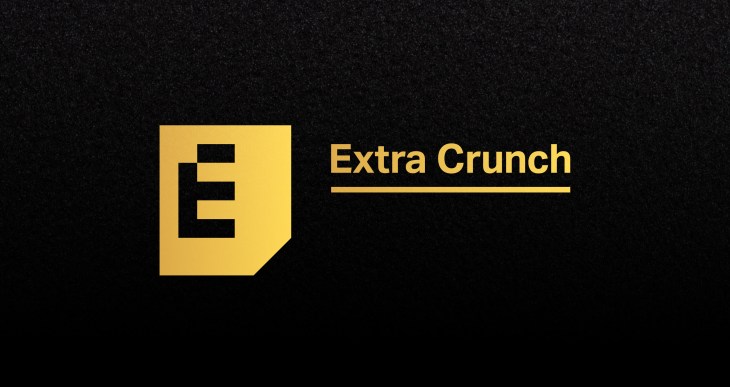Guest writing for Extra Crunch / TechCrunch
We have published a smattering of interesting guest posts on TechCrunch and Extra Crunch from experts in their fields who want to spread their smart ideas to more people. Know someone who is brimming with ideas that deserves a larger platform? Definitely drop us a line and read what we are looking for.
Remote workers are the next “tech hub”
We have a provocative argument from Sherwood Morrison about the rise of the remote worker, which is near-and-dear to my heart. Morrison writes:
You don’t have to look far to find startup gurus and VCs who strongly advise against being remote, much less a nomad. The basic reasoning is simple: Not having a location doesn’t add anything, so why do it? Startups are fragile, so it’s best to avoid any work practice that could disrupt delicate growth cycles.
But that view is incorrect. For companies that have chosen to be distributed, remote has added value. Some claim they wouldn’t have grown as fast or as well if they weren’t remote. And there’s more to being a nomad than making sure your prime years go to better experiences than a daily commute between San Francisco and San Mateo.
Niantic EC-1: Part 2 – The rise of Pokémon GO
TechCrunch editor Greg Kumparak dropped part two of his four-part EC-1 on Niantic, this time focused on Pokémon GO. Extra Crunch members are clearly enjoying it, since average read times are well past 14 minutes each on the site. From just one segment of this magnum opus:
By around the beginning of 2015, Pokémon GO was well underway. They had The Pokémon Company on board, and their shared vision was starting to come together.
But Niantic Labs was almost out of runway.
As covered in Part I , the team had already decided to spin-out of Google and form a new company. They were at the tail end of many months of negotiations with Google, figuring out exactly how a spin-out would even work. Google would give them a few million for a stake in the new Niantic, Inc. But if they were going to finish Pokémon GO, Niantic would still need to find more money. The problem? Few VCs seemed to want any part of it.
Meanwhile, the Niantic team was shrinking. Even if the team could raise all the money they wanted, not everyone was about to leave Google for a job with this little startup. People have kids, and debt, and mortgages to pay. By the time the spin-out was through, the team would drop from around 80 employees to less than 40.
And they still had to tell The Pokémon Company what was happening.
Be sure to grab a coffee and read the whole thing.
Income-share agreements
Schools have a huge problem, particularly in higher education: costs. Tuition has soared over the last few decades, and yet, the programs to finance this critical knowledge acquisition haven’t changed.
That’s where income-share agreements could prove interesting. The idea is to pay a percentage of your income post-graduation in order to cover the costs of tuition. These loan products are designed to align incentives between the institution, the lender, and the student for the best outcomes possible.
TechCrunch media columnist Eric Peckham and I discussed ISAs and their future and posted our edited commentary:
Danny: And then the incentive alignment will make colleges more pre-professional?
Eric: Incentives drive behavior. The financial incentive of higher ed programs now is to get students in the door and collect the upfront tuition dollars from the loans they’ve taken out. If the incentives were aligned around students getting high paying jobs and successful careers after graduation, that would be a radical shift to reverse much of the cost disease in colleges. ISAs reward institutions that are effective at educating their students and do so in a cost-effective way.
If ISAs go mainstream, you’ll see a wave of entrepreneurs starting (non-profit or for-profit) education programs that are much better ROI for career success in a certain field than traditional colleges. More serious training, fewer $20 million gyms.
But many universities are also testing ISAs as an alternative to private student loans. That means it’s only a small amount of their revenue model, but even then it creates a shift in mindset to think more about what career advantages students are getting for the money spent. To say universities don’t prioritize career services today is a massive understatement–the budgets show its a complete afterthought.
Equity Transcription: Special garbage, no, I mean, trash fire edition
We have the next edition of Equity available as a transcript. A fun excerpt:
Kate Clark:Yeah, you’re right. I mean I think it’s pretty hard to criticize and I know people want to, and that people, I mean Alex, you were just going … What’d you call it before we recorded, you called them a, was it garbage fire?
Alex Wilhelm:Okay. So Kate. The stuff we say before the show, is before the show. But for context, I was talking about Uber and now I feel like a jerk anyways. We were just discussing losses I think, and the pace they’re off and paths to profitability. And I made a rude joke about Uber, which is not public yet.
Kate Clark:Right, you said it was a garbage fire business. I think that’s what you called it.
Alex Wilhelm:I think it was trash fire, if we’re going to quote me.
Kate Clark:Sorry, yes, trash fire. Trash fire.
I believe it is called a dumpster fire, but who am I kidding?
Thanks
To every member of Extra Crunch: thank you. You allow us to get off the ad-laden media churn conveyor belt and spend quality time on amazing ideas, people, and companies. If I can ever be of assistance, hit reply, or send an email to danny@techcrunch.com.

